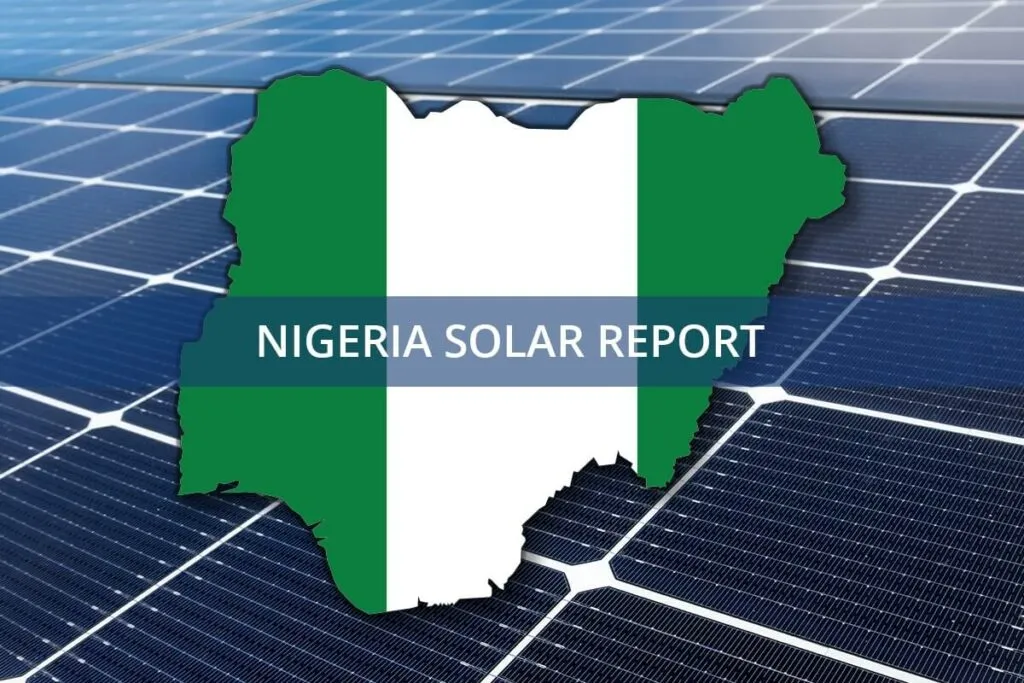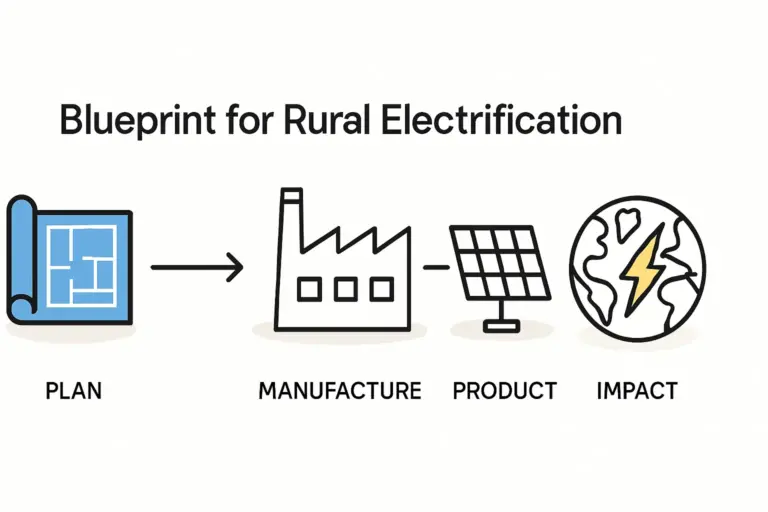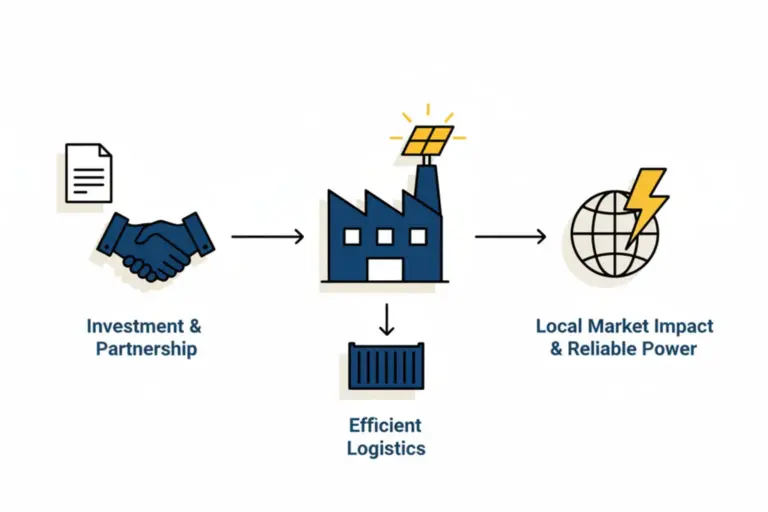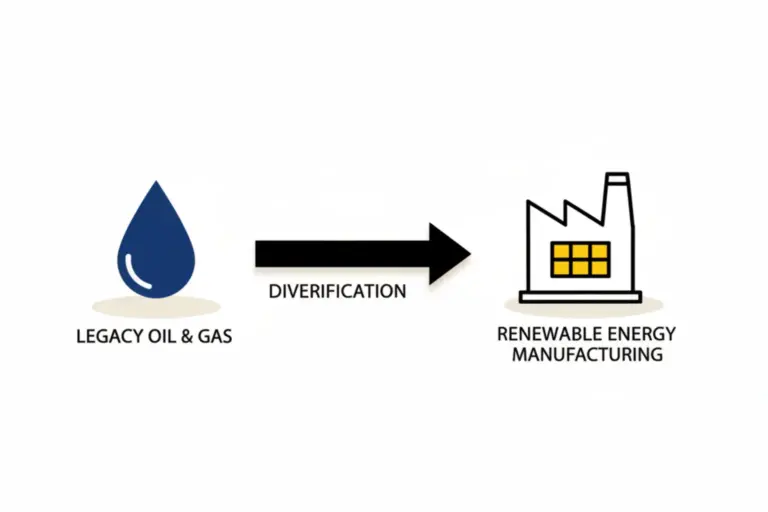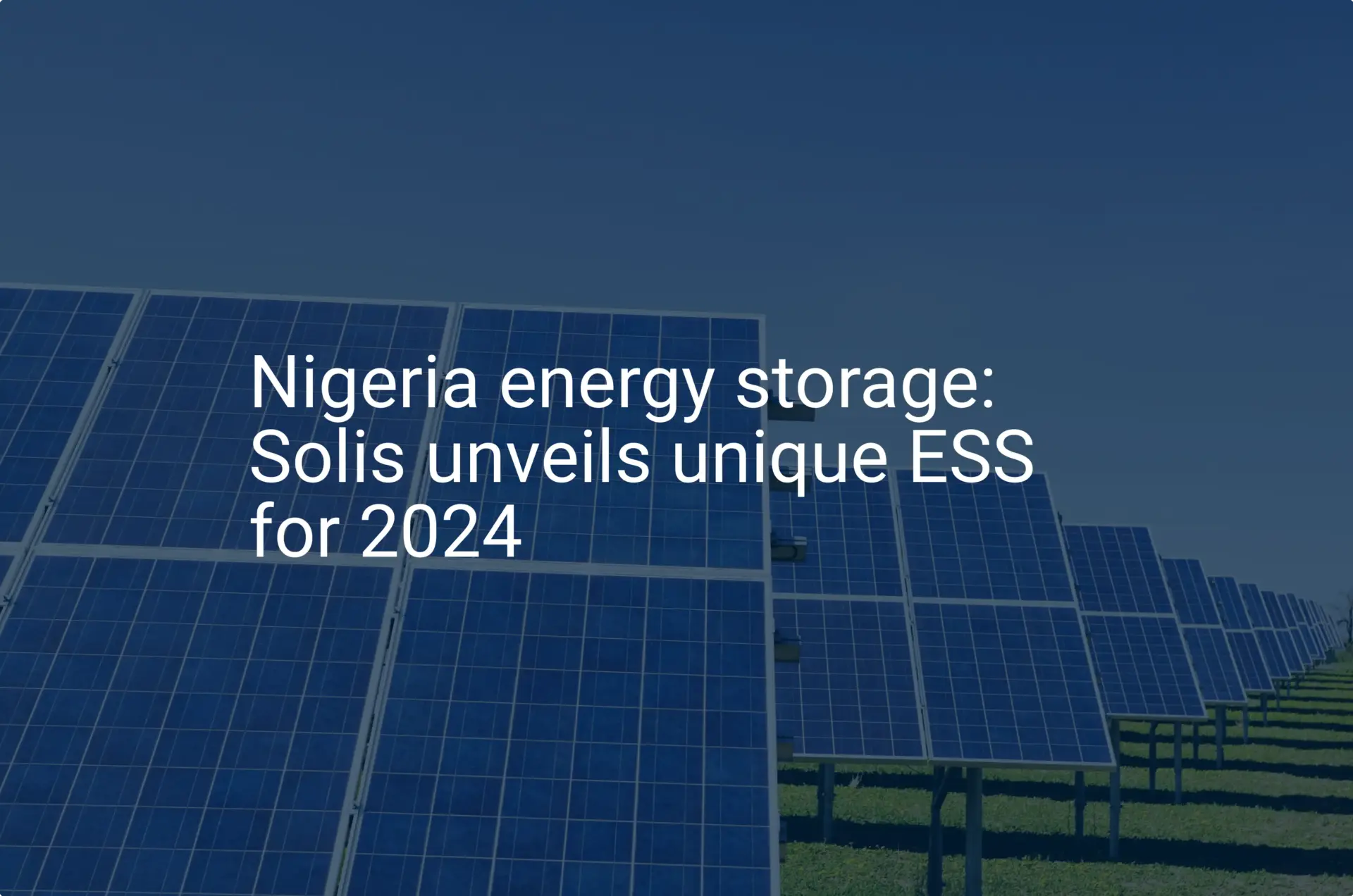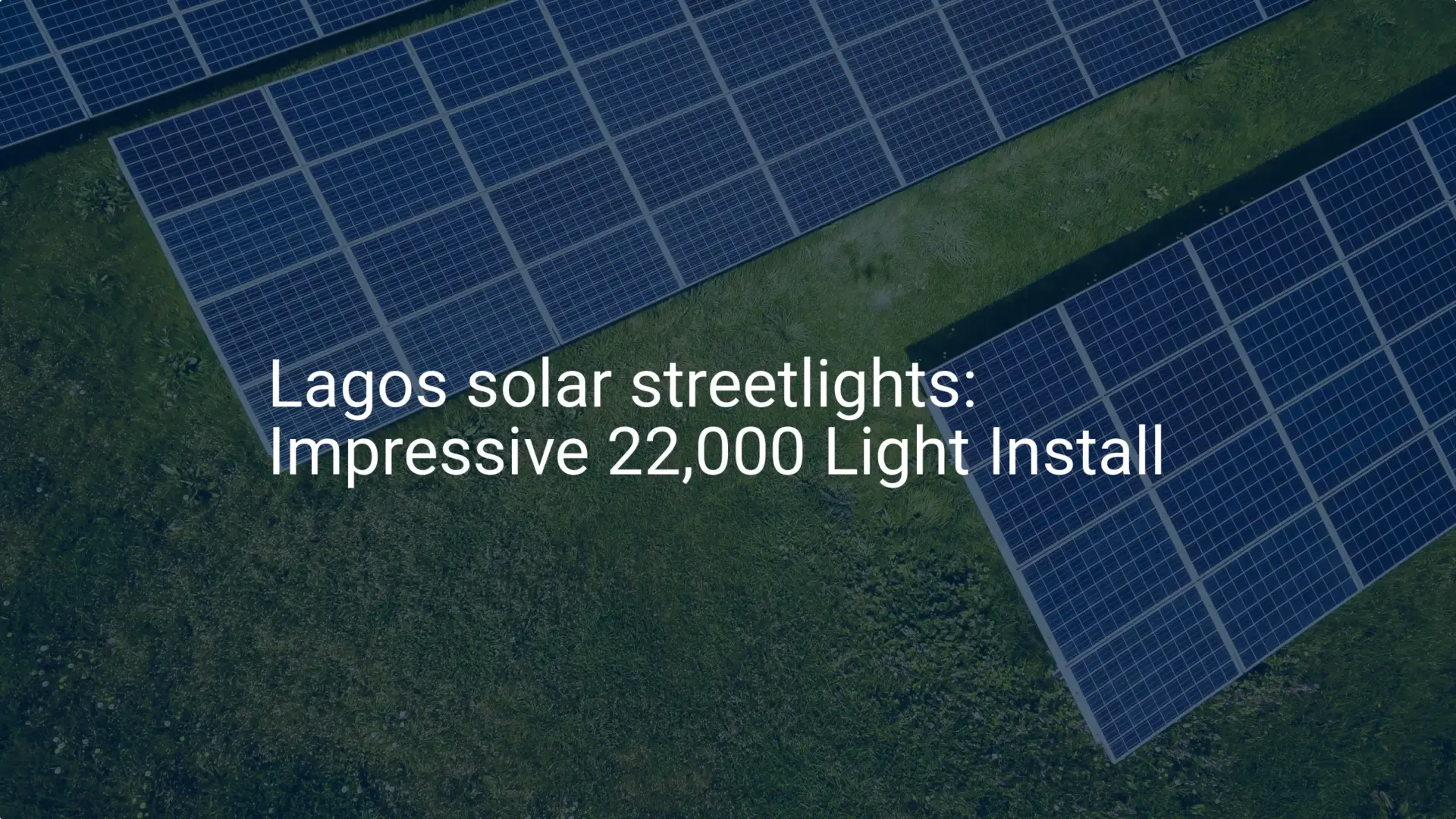Entrepreneurs considering the West African solar market face a complex equation. On one hand, there is immense demand for reliable energy. On the other, the logistical and financial hurdles of importing high-tech raw materials and exporting finished goods can seem prohibitive.
Customs duties, administrative delays, and tax liabilities can erode profit margins before the first solar module is even sold.
Nigeria’s economic framework, however, offers a strategic solution to these challenges: the Free Trade Zone (FTZ). For a solar module manufacturer with regional ambitions, operating within one of these designated zones can transform a high-friction business model into a streamlined, competitive enterprise. This approach is a powerful way to build a manufacturing base in Africa’s largest economy while serving the wider ECOWAS region and beyond.
Understanding the Free Trade Zone Concept in a Nigerian Context
A Free Trade Zone is a geographically designated area within a country that is considered outside its customs territory for regulatory purposes. Businesses operating within an FTZ benefit from a set of incentives designed to attract foreign investment, boost manufacturing, and promote exports. In Nigeria, these zones are primarily regulated by the Nigeria Export Processing Zones Authority (NEPZA).
Think of an FTZ as a ‘customs-free harbor’ for your manufacturing plant. Raw materials, such as solar cells, EVA film, glass, and aluminum frames, can be imported into the zone without incurring typical import duties and taxes. The same exemptions apply to the specialized solar module production machines required for assembly.
Once the finished solar modules are produced, they can be exported to other countries directly from the zone, again bypassing standard export tariffs and procedures. It’s this export-focused structure that makes the FTZ model especially relevant for a regional solar module supplier.

Key Financial and Operational Advantages for Solar Manufacturers
Locating a solar module factory in a Nigerian FTZ offers distinct advantages that directly boost a company’s financial viability and operational efficiency. These benefits are not marginal; they are foundational to building a competitive export hub.
Exemption from Taxes and Levies
Enterprises operating within a licensed FTZ are exempt from all federal, state, and local government taxes, rates, and levies. This includes:
- Corporate Income Tax
- Value Added Tax (VAT) on inputs and outputs
- Withholding Tax on dividends and interest
- Other duties and levies typically applied to businesses in the customs territory
This comprehensive tax holiday significantly reduces the operational cost base, allowing for more competitive pricing of the final product in international markets.
Duty-Free Import of Raw Materials and Equipment
The single greatest cost-saving measure for a solar manufacturer in an FTZ is the complete exemption from customs duties on all imported capital goods, machinery, raw materials, and components. For a business reliant on a global supply chain for key inputs like photovoltaic cells, this advantage is hard to overstate. It directly lowers the initial capital outlay detailed in the investment requirements for a 20–50 MW setup and reduces the working capital needed for procuring raw materials.
Streamlined Logistics and Customs Procedures
FTZs operate under simplified customs and administrative procedures, often described as a ‘one-stop shop’ service. This approach minimizes the bureaucratic delays associated with clearing imported goods and processing export documentation. For a manufacturer serving multiple regional markets, this efficiency is critical. Faster turnaround times for both inbound materials and outbound products lead to better inventory management and the ability to meet client delivery deadlines reliably.
Access to Reliable Infrastructure
Many of Nigeria’s premier Free Trade Zones are developed as public-private partnerships, resulting in infrastructure that is often superior to what is available elsewhere. This typically includes dedicated power generation, water supply, modern road networks, and proximity to seaports or airports. For a power-intensive process like solar module manufacturing, access to a stable power supply is a crucial operational advantage, particularly in a region where the national grid can be unreliable.
Selecting the Right Free Trade Zone: A Comparative Overview
Nigeria offers several Free Trade Zones, each with unique geographical and logistical strengths. The choice of location should be guided by your primary target export markets.

Lekki Free Trade Zone (LFTZ), Lagos
Situated near Nigeria’s commercial heart and adjacent to the new Lekki Deep Sea Port, the LFTZ is ideally positioned for manufacturers targeting global and West African coastal markets. Its direct access to modern port infrastructure makes it a prime location for sea-freight-based export and import operations.
Calabar Free Trade Zone (CFTZ), Cross River State
As one of Nigeria’s first FTZs, Calabar has well-established infrastructure and is located on the coast with its own port. Its proximity to Cameroon and Central Africa makes it a strategic base for supplying markets in that sub-region.
Kano Free Trade Zone (KFTZ), Kano State
Located in the north, the KFTZ is the logical choice for a manufacturer focused on overland exports to landlocked Sahel countries such as Niger, Chad, and northern Cameroon. Its position as a historical trade hub facilitates access to these extensive terrestrial trade routes.
Practical Considerations and Potential Challenges
While the benefits are significant, entrepreneurs must approach an FTZ investment with a clear view of the operational realities. A successful setup requires careful planning and due diligence.
-
Navigating Bureaucracy: Although streamlined, the initial process of company registration and securing the necessary operating licenses from NEPZA still requires meticulous documentation.
-
Domestic Market Access: Crucially, while an FTZ is ideal for export, selling finished solar modules into the Nigerian domestic market (the Customs Territory) means the goods are treated as imports. They will be subject to the relevant duties and taxes, which must be factored into any hybrid business model.
-
Operational Planning: Building and commissioning a plant remains a complex undertaking. Based on experience from J.v.G. turnkey projects, even with FTZ advantages, a timeline of 9 to 12 months from initial planning to full production is a realistic benchmark. A thorough understanding of how to start a solar factory is essential before committing to a location.
Frequently Asked Questions (FAQ)
-
Can a foreign company own 100% of a business in a Nigerian FTZ?
Yes, the regulations permit 100% foreign ownership of enterprises within the zones, giving investors full control over their operations. -
Is there a restriction on repatriating profits?
No, investors are permitted to repatriate 100% of their profits and dividends out of the country without restriction. This is a key incentive designed to attract foreign direct investment. -
Can I sell my solar modules within Nigeria if my factory is in an FTZ?
Yes, but the transaction is treated as an import into Nigeria. You will need to follow standard import procedures and pay all applicable customs duties and taxes on these domestic sales. Up to 100% of production can be sold into the domestic market under these conditions. -
Are there requirements for hiring local staff?
While there is an expectation that FTZ enterprises will contribute to local employment, regulations are generally flexible. Companies are free to hire a mix of local and expatriate staff, though an expatriate quota system applies to foreign employees.
Next Steps in Your Planning Process
For professionals and entrepreneurs exploring this opportunity, the essential next step is a detailed feasibility study and comprehensive business plan. Your plan should specifically analyze the costs and benefits of operating within a target FTZ versus a location in the standard customs territory.
By weighing the savings from tax and duty exemptions against any potential premiums for land or services within the zone, you can make an informed decision and build a robust strategy for establishing a successful solar module export hub in West Africa.

